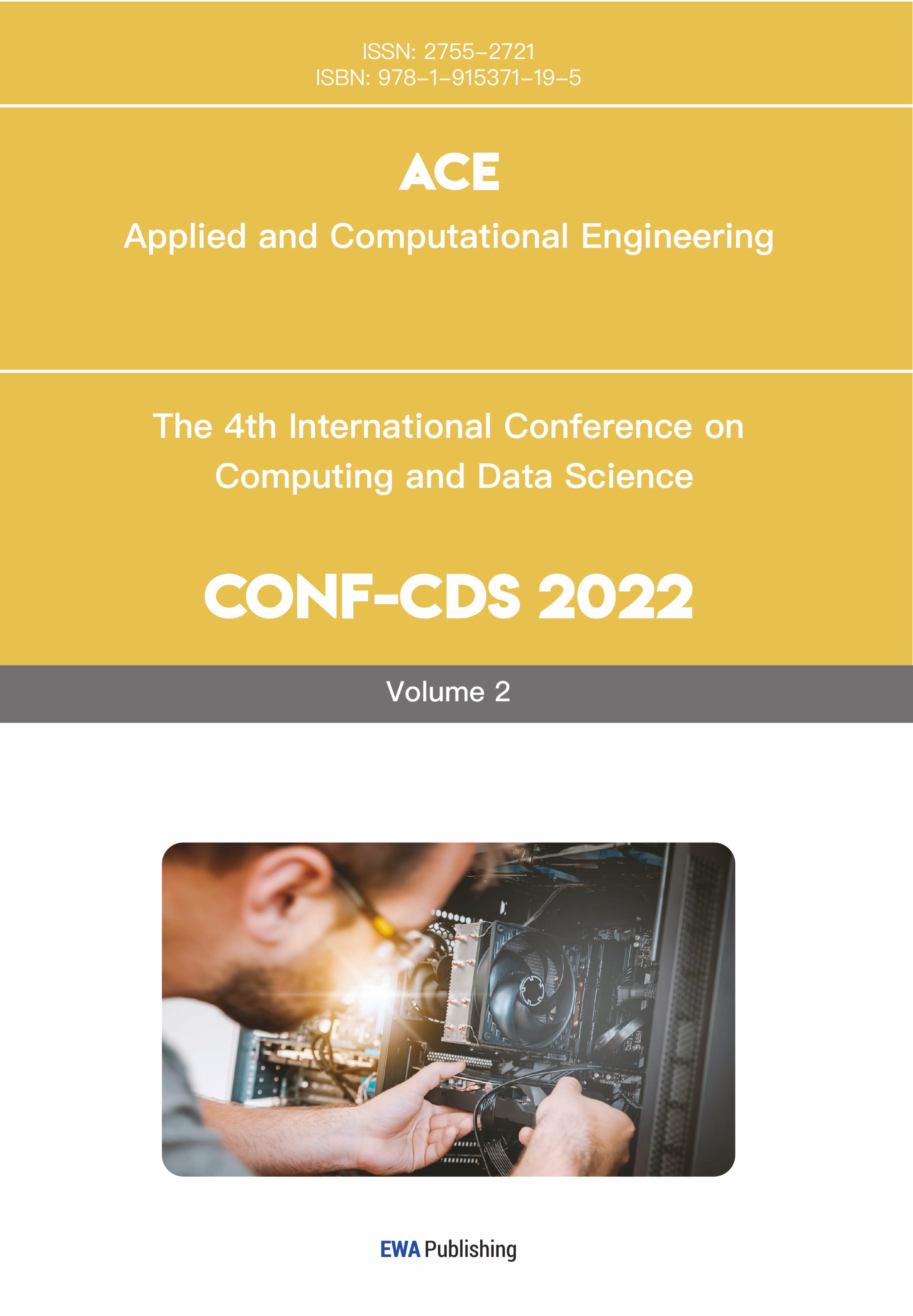References
[1]. Zhao, M., Wang, L., Jiang, Z., Li, R., Lu, X., & Hu, Z. (2023). Multi-task learning with graph attention networks for multi-domain task-oriented dialogue systems. Knowledge-Based Systems, 259, 110069.
[2]. Wang, S., Wang, S., Liu, Z., & Zhang, Q. (2023). A role distinguishing Bert model for medical dialogue system in sustainable smart city. Sustainable Energy Technologies and Assessments, 55, 102896.
[3]. Firdaus, M., Ekbal, A., & Cambria, E. (2023). Multitask learning for multilingual intent detection and slot filling in dialogue systems. Information Fusion, 91, 299-315.
[4]. Zhang, W., Cui, Y., Zhang, K., Wang, Y., Zhu, Q., Li, L., & Liu, T. (2023). A Static and Dynamic Attention Framework for Multi Turn Dialogue Generation. ACM Transactions on Information Systems, 41(1), 1-30.
[5]. Wang, X., Zhang, H., Zhao, S., Chen, H., Cheng, B., Ding, Z., ... & Lan, Y. (2023). HiBERT: Detecting the illogical patterns with hierarchical BERT for multi-turn dialogue reasoning. Neurocomputing, 524, 167-177.
[6]. Wang, H., Guo, B., Liu, J., Ding, Y., & Yu, Z. (2023). Towards Informative and Diverse Dialogue Systems over Hierarchical Crowd Intelligence Knowledge Graph. ACM Transactions on Knowledge Discovery from Data.
[7]. Deng, J., Sun, H., Zhang, Z., Cheng, J., & Huang, M. (2023). Recent Advances towards Safe, Responsible, and Moral Dialogue Systems: A Survey. arXiv preprint arXiv:2302.09270.
[8]. Zhen, J. (2018). A Study And Implementation of Multi-level Semantics Model for Multi-turn Dialogue System. [D].
[9]. Sheu, J. S., Wu, S. R., & Wu, W. H. (2023). Performance Improvement on Traditional Chinese Task-Oriented Dialogue Systems with Reinforcement Learning and Regularized Dropout Technique. IEEE Access.
[10]. Liu, Z., Peng, E., Yan, S., Li, G., & Hao, T. (2018, August). T-know: a knowledge graph-based question answering and infor-mation retrieval system for traditional Chinese medicine. In Proceedings of the 27th international conference on computational linguistics: system demonstrations (pp. 15-19).
[11]. Yang, T. H., Pleva, M., Hládek, D., & Su, M. H. (2022, December). BERT-based Chinese Medicine Named Entity Recognition Model Applied to Medication Reminder Dialogue System. In 2022 13th International Symposium on Chinese Spoken Language Processing (ISCSLP) (pp. 374-378). IEEE.
Cite this article
Hu,Q.;Yang,Y.;Zhang,Y.;Zheng,J. (2023). The Advance of Multi-Round Dialogue System with Deep Learning. Applied and Computational Engineering,8,693-700.
Data availability
The datasets used and/or analyzed during the current study will be available from the authors upon reasonable request.
Disclaimer/Publisher's Note
The statements, opinions and data contained in all publications are solely those of the individual author(s) and contributor(s) and not of EWA Publishing and/or the editor(s). EWA Publishing and/or the editor(s) disclaim responsibility for any injury to people or property resulting from any ideas, methods, instructions or products referred to in the content.
About volume
Volume title: Proceedings of the 2023 International Conference on Software Engineering and Machine Learning
© 2024 by the author(s). Licensee EWA Publishing, Oxford, UK. This article is an open access article distributed under the terms and
conditions of the Creative Commons Attribution (CC BY) license. Authors who
publish this series agree to the following terms:
1. Authors retain copyright and grant the series right of first publication with the work simultaneously licensed under a Creative Commons
Attribution License that allows others to share the work with an acknowledgment of the work's authorship and initial publication in this
series.
2. Authors are able to enter into separate, additional contractual arrangements for the non-exclusive distribution of the series's published
version of the work (e.g., post it to an institutional repository or publish it in a book), with an acknowledgment of its initial
publication in this series.
3. Authors are permitted and encouraged to post their work online (e.g., in institutional repositories or on their website) prior to and
during the submission process, as it can lead to productive exchanges, as well as earlier and greater citation of published work (See
Open access policy for details).
References
[1]. Zhao, M., Wang, L., Jiang, Z., Li, R., Lu, X., & Hu, Z. (2023). Multi-task learning with graph attention networks for multi-domain task-oriented dialogue systems. Knowledge-Based Systems, 259, 110069.
[2]. Wang, S., Wang, S., Liu, Z., & Zhang, Q. (2023). A role distinguishing Bert model for medical dialogue system in sustainable smart city. Sustainable Energy Technologies and Assessments, 55, 102896.
[3]. Firdaus, M., Ekbal, A., & Cambria, E. (2023). Multitask learning for multilingual intent detection and slot filling in dialogue systems. Information Fusion, 91, 299-315.
[4]. Zhang, W., Cui, Y., Zhang, K., Wang, Y., Zhu, Q., Li, L., & Liu, T. (2023). A Static and Dynamic Attention Framework for Multi Turn Dialogue Generation. ACM Transactions on Information Systems, 41(1), 1-30.
[5]. Wang, X., Zhang, H., Zhao, S., Chen, H., Cheng, B., Ding, Z., ... & Lan, Y. (2023). HiBERT: Detecting the illogical patterns with hierarchical BERT for multi-turn dialogue reasoning. Neurocomputing, 524, 167-177.
[6]. Wang, H., Guo, B., Liu, J., Ding, Y., & Yu, Z. (2023). Towards Informative and Diverse Dialogue Systems over Hierarchical Crowd Intelligence Knowledge Graph. ACM Transactions on Knowledge Discovery from Data.
[7]. Deng, J., Sun, H., Zhang, Z., Cheng, J., & Huang, M. (2023). Recent Advances towards Safe, Responsible, and Moral Dialogue Systems: A Survey. arXiv preprint arXiv:2302.09270.
[8]. Zhen, J. (2018). A Study And Implementation of Multi-level Semantics Model for Multi-turn Dialogue System. [D].
[9]. Sheu, J. S., Wu, S. R., & Wu, W. H. (2023). Performance Improvement on Traditional Chinese Task-Oriented Dialogue Systems with Reinforcement Learning and Regularized Dropout Technique. IEEE Access.
[10]. Liu, Z., Peng, E., Yan, S., Li, G., & Hao, T. (2018, August). T-know: a knowledge graph-based question answering and infor-mation retrieval system for traditional Chinese medicine. In Proceedings of the 27th international conference on computational linguistics: system demonstrations (pp. 15-19).
[11]. Yang, T. H., Pleva, M., Hládek, D., & Su, M. H. (2022, December). BERT-based Chinese Medicine Named Entity Recognition Model Applied to Medication Reminder Dialogue System. In 2022 13th International Symposium on Chinese Spoken Language Processing (ISCSLP) (pp. 374-378). IEEE.









